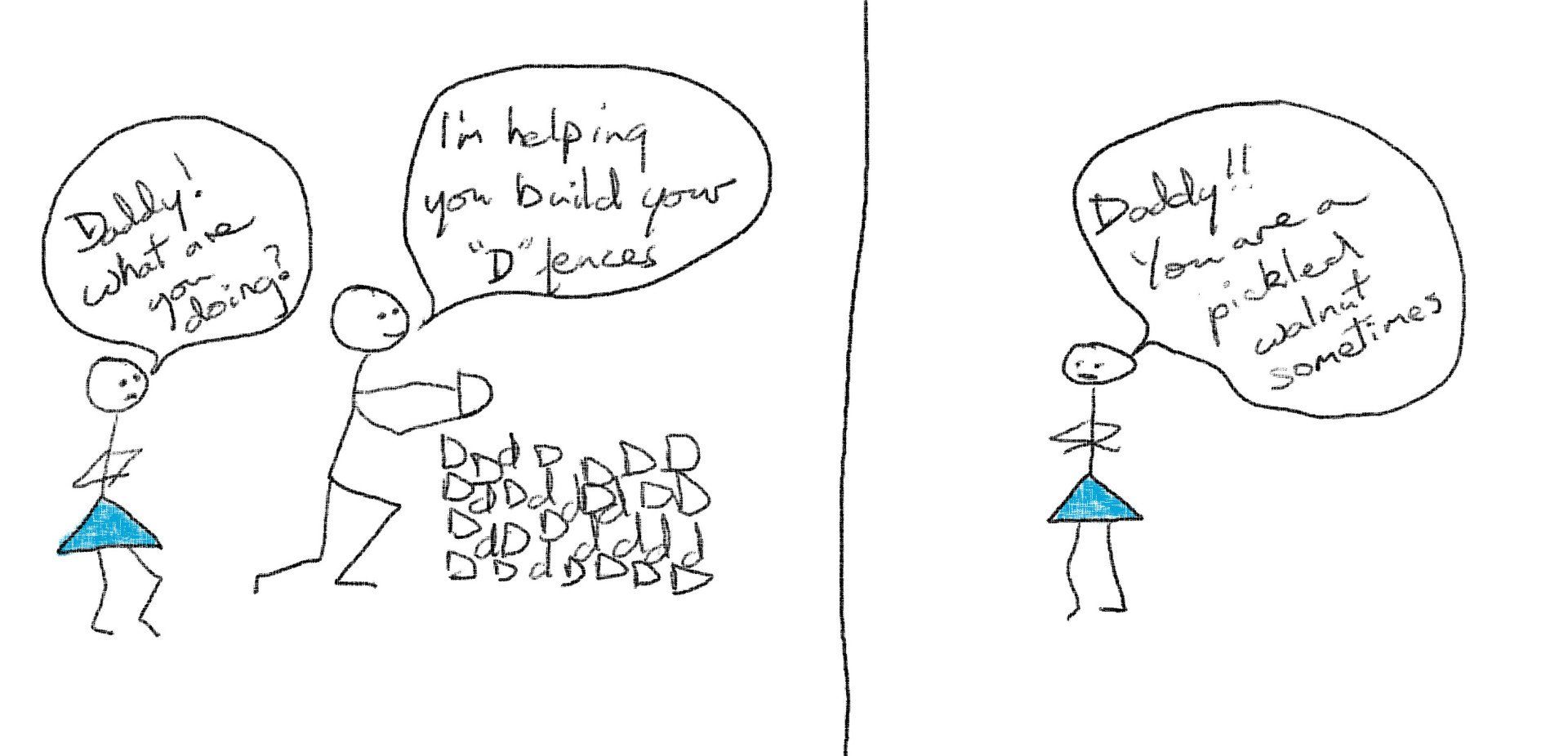
Are You...
Making Mealtimes A Battleground?
Defensive Mantras
Making Eating Safe

Anxiety around food is a natural consequence of modern living, for both our children AND for us.
Anxiety around food is natural, but that doesn't mean you can't defend against it.
I vividly remember sitting alone on my roof top terrace in Marrakech, looking out at the evening smoke curling up from Jemaa El Fna with a plate of sheep's brains in front of me. Salwa had been desperate to cook me brains for ages and I'd finally consented to try them.
My anxiety levels were pretty high I can assure you. Partly because I was fairly sure I wouldn't like them and partly because I knew it would be very bad form to not eat them.
Even now, several years later, my heart rate increases at the thought of it.
How I would have loved someone to be sat next to me saying:
"Remember, you don't need to eat anything you don't want."
It's the mantra I used with my daughter almost every day for years. At the dinner table, on her way to school, whenever she raised a question about food.
So simple that even her three year old brain could grasp the meaning and hold on to it and yet so powerful in reducing her anxiety.
Only in hindsight did I realise that the mantras were for me as much as for my daughter.
I thought I was using mantras purely to help reduce my daughters food anxiety.
In reality, I was using them just as much to manage my own.
For all, I believed in principle that she should be in control of what she ate, I still desperately wanted her to learn to eat healthily and to feel confident that she wouldn't go hungry when I wasn't there to produce the food she loved.
Inside I was still screaming... "But... please just try some, how can you know if you don't try?"
The mantras gradually helped me to quiet those voices, manage down my own anxiety and inhibit my natural instinct to control and coerce.
There are 3 areas to defend against.
1.
The first, and most obvious, is helping our children feel in control of what they put in their mouths.
This sense of complete, unequivocal control is essential if they are to genuinely open up to new experiences.
In the early days, to get the message across, it's worth making the mantra a command, rather than a choice..
"Don't eat anything you don't want."
rather than..
"You don't have to eat anything you don't want."
It's subtle, but important. You, their primary authority figure, are telling them they mustn't eat something they don't want, even if they are under pressure from someone else to do so. That is a powerful reassurance to their young minds.
2.
The second is what they do when they have put something in their mouths.
Whenever my daughter was about to try something new I would say to her...
"Remember, you can always spit it out if you don't like it."
3.
The third is making sure they feel in control of how much they eat.
Just because they've tried something and decided they like it, doesn't mean they need to eat a plateful. Just because something tastes ok doesn't make it safe. It takes time to feel confident you can eat something green and leafy and stay alive.
I remember my daughters gradual discovery of cabbage. When she eventually felt confident to try some she ate a tiny mouthful and left the rest on her plate. The same happened the next time, and the next. Gradually after that she ate a little more each time. Eventually, after several months, she ate it all.
Each time she said she'd had enough I would say..
"That's fine, you don't need to eat anything you don't want."
Now cabbage is one of her favourite things, not quite up there with chocolate ice cream, but close enough.
The biggest threat to all this is other, well meaning, adults.
Grandparents, aunts, uncles, childminders, school dinner attendants, other parents.
They are all a potential threat when you're trying to build your children's defences.
In the ideal world you'd talk to them all, get them to understand the approach and to adopt it for themselves.
Fat chance.
The reality is that the instinct to control a child's eating is so deeply ingrained in most adults that you'll never persuade them all, even if you had the chance to try. Grandparents and dinner ladies, in particular, seem to be a law unto themselves, bless them!
Obviously it's important to explain to as many as you can, but don't trust them to follow through.
The only real hope your little one's have is to learn to defend themselves.
This is where the mantras become particularly powerful for them.
I would encourage my daughter to say "Daddy says I don't have to eat anything I don't want."
Thankfully, most of the time it worked.
She would still come home with stories of children being 'made' to eat everything on their plate before having pudding, but in general these were stories about other unfortunate children, not her.
These mantras alone are sufficient to diffuse the battles, rebuild mutual respect and prepare the ground for learning.
You'd be amazed at how quickly you can turn things around.
It really is a joy when mealtimes become happy, calm places.
But, the mantras themselves teach nothing about food.
When our children are first learning to swim we give them water wings, inflatable vests or other flotation devices.
These allow our children to enjoy the water safely. To feel comfortable being in water. To create a desire to learn to swim.
They are a safety device, not a teaching device.
Our children still need to learn to support their own body weight in the water and propel it forward. They still need to learn to swim.
The same is true with eating.
Defensive mantras are the water wings. They are an important first step. But the real work is the gradual process of learning what's safe to eat.
Remember, young children do not refuse to eat things just to wind us up!
Unless we teach them to do so.
Created 27/05/2019
Last Updated 28/05/2019

